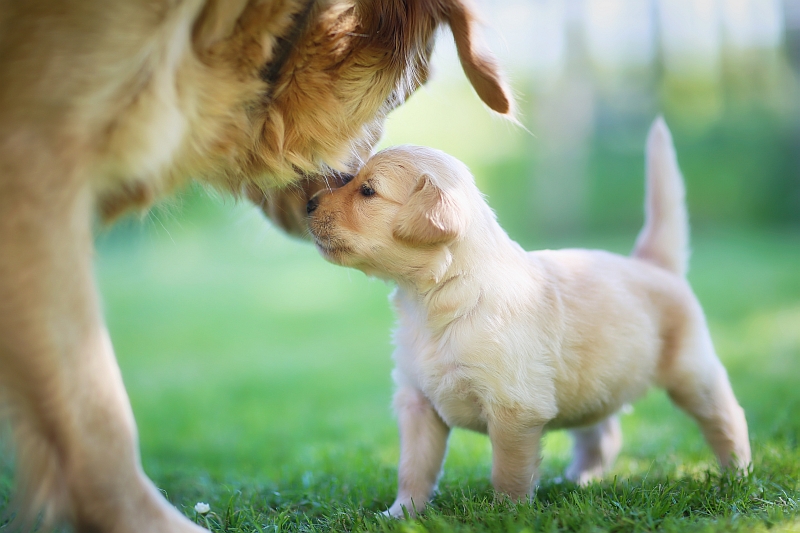All animals have natural maternal instincts that provides them wisdom about how to care for their young. A previously independent cat or rambunctious dog suddenly becomes an expert on how to feed and care for their littler the moment they become parents. What kinds of behaviors can pet-owners expect to see from their pets when they become mothers? Here is a brief look at animal instincts when it comes to caring for their brood, as well as the maternal instincts that occur in humans when they adopt or care for a pet.
Animal Maternal Instincts
After cats and dogs give birth, their knowledge of how to function as a mother immediately kicks in along with a healthy surge of the hormone oxytocin. This causes a mother to feel protective, loving and accepting toward her young, similar to that which humans experience in childbirth. Dogs and cats know to cuddle their babies close and warm, lying on the side so they can easily access the milk. The females also instantly consume the placenta, which allows their bodies to reabsorb the necessary nutrients required to help nourish them, and enrich their milk for the litter. As the kittens grow older, cats will carry their young at the nape of the neck, nuzzle, lick and groom them to keep their coats clean, and will even nudge and separate two kitties if they are getting into a squabble. Dogs will lick their puppies’ behinds to help encourage them to eliminate, and will keep them close, warm and well-groomed in the days before their eyes are opened. Dogs will growl and cats will hiss at anyone coming too close to their litter, unless it is a trusted, slow-moving familiar face, which is all a part of the naturally protective instinct that makes these animals adept mothers.
Granted, though all the maternal behaviors animals possess are ones that they are given naturally, not every animal will prove to be an excellent mother. Tragically some queens and dams have been known to abandon their young in the wild, while some domestic pets merely seem disinterested in their litter. This is, however, the exception to the rule and usually occurs when the mother is a young cat or dog still no more than an adolescent herself.
Some animals are completely the opposite, and prove to be superior stand-in parents. If a young kitten or puppy is adopted into a home where there are older animals, some pets have been known to guard, play with, groom and even nurse the young animal as if it was her own. It really just depends on the type of cat or dog, whether or not the young animal is abandoned, or seems needy, and if they older pet has the inclination or ability to offer care for the fur-baby.

